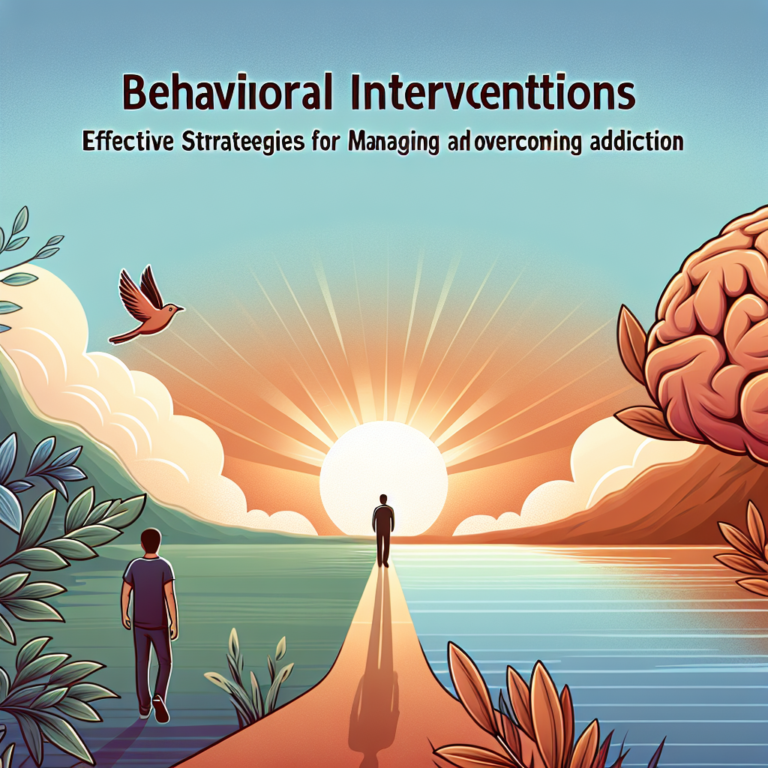
Harnessing Behavioral Psychology: Proven Techniques for Mastering Stress
Introduction: Conquering Stress with Behavioral Insights
In an era dominated by rapid change and constant pressure, stress has become an unwelcome companion for many. Whether it’s juggling work deadlines, managing family responsibilities, or coping with personal challenges, the feeling of being overwhelmed can significantly impact our mental and physical well-being. Fortunately, there’s hope. By harnessing behavioral psychology, we can unlock proven techniques for mastering stress and reclaim our peace of mind. This comprehensive article will explore effective strategies grounded in psychological principles, providing you with the tools to navigate the storm of stress with confidence and resilience.
Understanding Stress: The Psychological Perspective
What Is Stress?
Before diving into the techniques, it’s essential to comprehend what stress truly is. Stress is the body’s natural response to perceived threats or pressures, triggering a cascade of biological reactions. While a certain amount of stress can be beneficial—prompting you to meet deadlines or excel in challenging situations—chronic stress can lead to a multitude of health issues, including anxiety, depression, cardiovascular diseases, and more.
The Role of Behavioral Psychology in Stress Management
Behavioral psychology focuses on the connection between our thoughts, feelings, and behaviors. By understanding these links, we can effectively alter our reactions to stress. The foundation of behavioral psychology lies in the belief that our environment and past experiences shape our responses. Therefore, by changing our perspectives and behaviors, we can master our stress levels.
Proven Techniques for Mastering Stress
1. Cognitive Behavioral Techniques
One of the most effective approaches in behavioral psychology is Cognitive Behavioral Therapy (CBT). CBT emphasizes the identification and restructuring of negative thought patterns that contribute to stress.
Case Study: Mary’s Transformation Through CBT
Mary, a 32-year-old marketing manager, often felt overwhelmed by her job. Through CBT, she learned to identify her perfectionist tendencies, which fueled her stress. By challenging her irrational thoughts and setting realistic goals, Mary was able to reduce her stress levels significantly, enhancing her productivity and overall happiness.
Key Insights:
- Identify Negative Thoughts: Monitor your internal dialogue, especially under stress.
- Challenge and Replace: Use evidence to dispute negative beliefs.
2. Mindfulness and Meditation
Mindfulness involves focusing on the present moment without judgment. This technique can profoundly reduce stress by fostering acceptance and reducing reactivity.
Practical Exercise: Guided Meditation
A simple way to incorporate mindfulness into your routine is through guided meditation. Numerous apps, such as Headspace or Calm, provide user-friendly resources to start your journey.
3. Behavioral Activation
Behavioral activation focuses on engaging in activities that bring joy and satisfaction. This technique can counteract the withdrawal that often accompanies stress.
Case Study: John’s Journey to Engagement
John, facing stress from unemployment, turned to behavioral activation. He made a list of activities he enjoyed (like hiking and painting) and committed to engaging in them regularly. The result? A significant reduction in his stress levels and a newfound passion for art.
Key Insights:
| Activity | Frequency | Stress Level Before (1-10) | Stress Level After (1-10) |
|---|---|---|---|
| Hiking | 3 times/week | 8 | 4 |
| Painting | 2 times/week | 7 | 3 |
4. Stress Journaling
Writing can be a powerful tool for stress management. Stress journaling allows individuals to express and process their emotions.
How to Start Your Own Stress Journal:
- Time: Dedicate 10-15 minutes daily.
- Content: Write about your feelings, stressors, and triumphs.
- Reflection: Revisit your entries weekly to identify patterns or triggers.
5. Building Resilience with Positive Psychology
Resilience plays a crucial role in stress management. Positive psychology emphasizes building strengths and fostering a positive mindset.
Case Study: Sarah’s Resilient Mindset
After experiencing a personal loss, Sarah adopted resilience-building techniques from positive psychology. She engaged in gratitude practices, noting three things she was thankful for each day. This shift in focus helped her cope with stress and find joy in everyday life.
The Science Behind Behavioral Techniques
Numerous studies reinforce the effectiveness of these techniques. For example, recent research published in the Journal of Consulting and Clinical Psychology demonstrated that CBT significantly reduces symptoms of anxiety and stress in various populations. Furthermore, a study in Psychological Science identified mindfulness as a powerful predictor of stress resilience.
Conclusion: Taking Charge of Your Stress
As you embark on your journey of Harnessing Behavioral Psychology: Proven Techniques for Mastering Stress, remember that change takes time. Start small, be patient with yourself, and gradually integrate these strategies into your daily routine. By leveraging the insights of behavioral psychology, you empower yourself to navigate stress with grace and confidence. Embrace the process, and you’ll discover that mastering stress is not just about survival; it’s about thriving in every aspect of your life.
FAQs
1. What is behavioral psychology, and how does it relate to stress?
Behavioral psychology examines the links between thoughts, emotions, and behaviors, identifying patterns that contribute to stress. Techniques derived from this field can help modify these patterns, leading to better stress management.
2. How long does it take to see results from these techniques?
The timeframe for seeing results varies based on the individual and the technique used. Generally, with consistent practice, you can start to notice improvements within a few weeks.
3. Can meditation really help with stress management?
Yes! Studies show that regular mindfulness meditation can significantly reduce stress levels, improve focus, and enhance overall emotional well-being.
4. Do I need a therapist to practice these techniques?
While professional guidance can be beneficial, many techniques, such as journaling and mindfulness, can be practiced independently. Consider seeking therapy if you’re struggling significantly with stress.
5. How can I maintain these techniques as a long-term habit?
Setting reminders, creating a dedicated space for practice, and finding support groups or accountability partners can help reinforce these techniques as part of your lifestyle.
By embracing behavioral psychology and its proven techniques, you can master stress and cultivate a healthier, happier life. Take the first step today!















